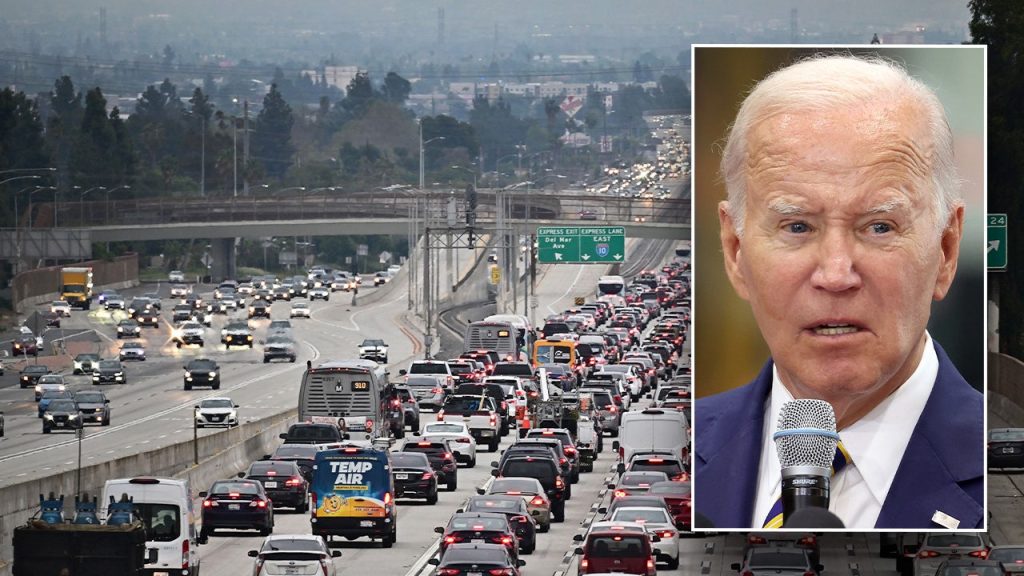A federal district court has overturned a climate rule implemented by the Biden administration that required states to track and set reduction goals for greenhouse gas emissions from vehicles on highways. The ruling was issued by Judge Benjamin Beaton of the U.S. District Court for the Western District of Kentucky, who ordered the Federal Highway Administration to stand down on the regulations finalized in November. This decision was a victory for the State of Kentucky, which had challenged the regulations alongside 21 other states. Kentucky’s Attorney General Russell Coleman criticized President Biden’s environmental agenda and celebrated the victory in court.
The lawsuit challenging the regulations was filed by Kentucky in December, just a month after the FHWA finalized the rules. The lawsuit argued that the FHWA had overstepped its legal authority by attempting to regulate vehicle emissions and force states to implement federal regulations. Judge Beaton agreed with these arguments in his ruling, stating that the regulations were beyond the FHWA’s statutory authority and were deemed “arbitrary and capricious.” He granted the plaintiff states’ motion for summary judgment, which vacated the rule immediately and prevented its enforcement during litigation.
Despite the FHWA’s support of President Biden’s goal of reducing carbon emissions by 50% by 2030, the 22 states that challenged the regulations, along with industry groups like the American Road & Transportation Builders Association, viewed the rules as limiting state efforts and mandating conformity with federal initiatives. The ruling by Judge Beaton aligned with a similar decision by a federal court in Texas, which also struck down the regulations there. Both rulings highlight the ongoing legal battles facing the Biden administration’s climate agenda.
Following the court’s decision, the FHWA expressed its commitment to supporting the Biden administration’s climate goals and reducing carbon pollution. The agency stated that it is reviewing the court’s decision and determining its next steps in light of the ruling. The discrepancies between the federal regulations and state autonomy in setting climate policies underscore the challenges and legal complexities involved in implementing comprehensive environmental initiatives at the national level. The court rulings serve as a reminder of the delicate balance between federal and state authority in environmental governance and the need for collaborative efforts to address climate change effectively.


